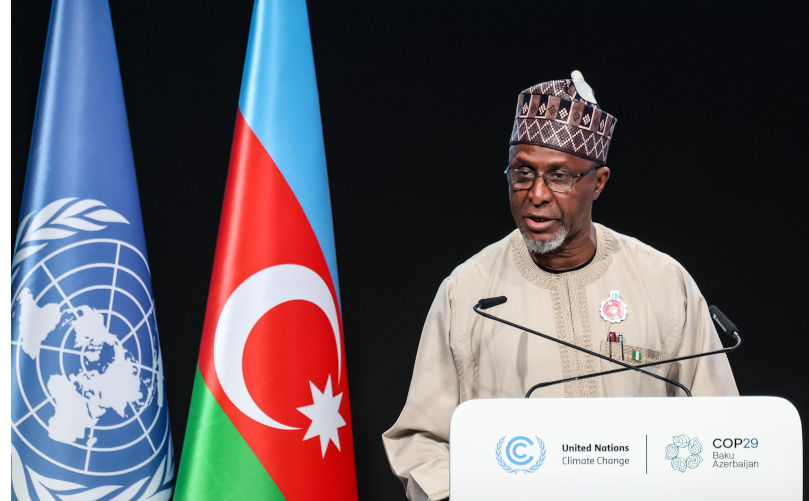Earth first: a foundational moral principle
November 27, 2024
COP29 was a failure not because there wasn’t enough money on offer, but because it ignored population.
The UN Climate talks COP29 have just concluded in Baku, Azerbaijan. The key issue on the agenda was how much developed countries were going to pay to help alleviate climate change in the developing world.
The visuals on the TV news from the end of COP29 said everything. Delegates from low-lying island countries like our Pacific neighbours walked out in disgust, two delegates, an Indian and a Nigerian, angrily denounced the inadequacy of the payment (US$300 billion) and a group of smiling men in suits from the developed world were congratulating each other that they had got ‘something’ through.
My sympathy lay with the first group, the people from island countries, mainly in the Pacific, who are already facing the results of climate change. A tiny proportion of the world’s population, they’re the ones copping the consequences of our over-development.
I was annoyed with the Indian and Nigerian delegates. They represented two over-populated countries; Nigeria specifically has done little or nothing in the last 20 years to do anything about controlling population. This issue was ignored at COP29. I know that for woke Westerners its politically incorrect to remind African or Asian countries about population, but – trigger warning – that’s precisely what I’m going to do.
Sure, we in Western developed countries are responsible for over-consumption, and Australia is particularly culpable for our export of coal and gas. But that doesn’t mean we bear all the blame. Global warming, species extinction and destruction of nature are caused entirely by humans and the more people there are, the greater the destruction.
So countries like Nigeria and India can’t occupy the moral high ground and blame Western over-development for everything. They are also responsible as long as they don’t seriously confront their own problems with over-population. India is now the world’s most populated country with 17.78% of the world’s population. Nigeria has the world’s sixth largest population with 232,680,000 people and a fertility rate of 4.4. Its median age is 18.
Nigeria is symptomatic of Africa generally. Nearly 1.5 billion people currently live in Africa. According to the UN’s median projections by 2050 there will be 2.5 billion (i.e. 1 in 4 humans on earth) and by 2100 Africa will have 3.8 billion people (i.e. 1 in 3 people on earth).
It’s true that fertility is declining in Africa: it is now four children per woman and 4.3 in sub-Saharan Africa; Niger’s fertility rate is 5.9 and its median age is 15. In 1980 the general African fertility rate was 6 children per woman.
Sure, we must assist developing countries with the consequences of global warming, but it needs to be a two-way process. Aid needs to be linked with population control. We are loathe to do that because it seems like we’re imposing our values on people with a different culture.
Henri Leridon of the Paris-based National Museum of Natural History, is blunt. He says that African populations will continue to increase because ‘mortality rates have decreased significantly’ but the birth rate has remained pretty much the same. ‘This discrepancy,’ he says, ‘can be explained by the persistence of behaviour characteristic of traditional rural societies and to the limited distribution of contraception.’
Our hesitancy in linking aid to population control is rooted in our deeply held conviction that we humans constitute the essential purpose and meaning of the world, re-enforcing the assumption that humans take priority over every other species. The underlying, usually unconscious presumption is that we must prioritise human needs over those of the natural world.
The extraordinary irony is that given we humans make up just 0.01% of all living things and that Homo sapiens has only been on Earth for about 300,000 years, while the Earth itself is 4.5 billion years old, the notion that we somehow constitute the entire meaning of creation is utterly preposterous.
We also tend to be obsessed with the pathos of the human and over-population is one of those realities that just don’t fit neatly into our individualistic, post-modern zeitgeist. We seem to find it extraordinarily difficult to face up to wide scale, complex issues like this.
We have to shift from our emphasis from human well-being to an entirely new foundational moral principle; one that prioritises the Earth and biodiversity. I maintain unequivocally that the natural world and the survival of other species takes priority over absolutely everything else, including the desires, needs and even the welfare of individual people and communities. There is no middle position here, no compromise to make this principle more palatable.
This principle of Earth first is profoundly subversive because it directly undermines the individualistic anthropocentrism which unconsciously dominates our presuppositions and decisions.
I have discussed these issues fully in my book The Depopulation Imperative. How many people can Earth support? (Australian Scholarly, 2021) and on _The Science Show_ (April 16, 2022).

